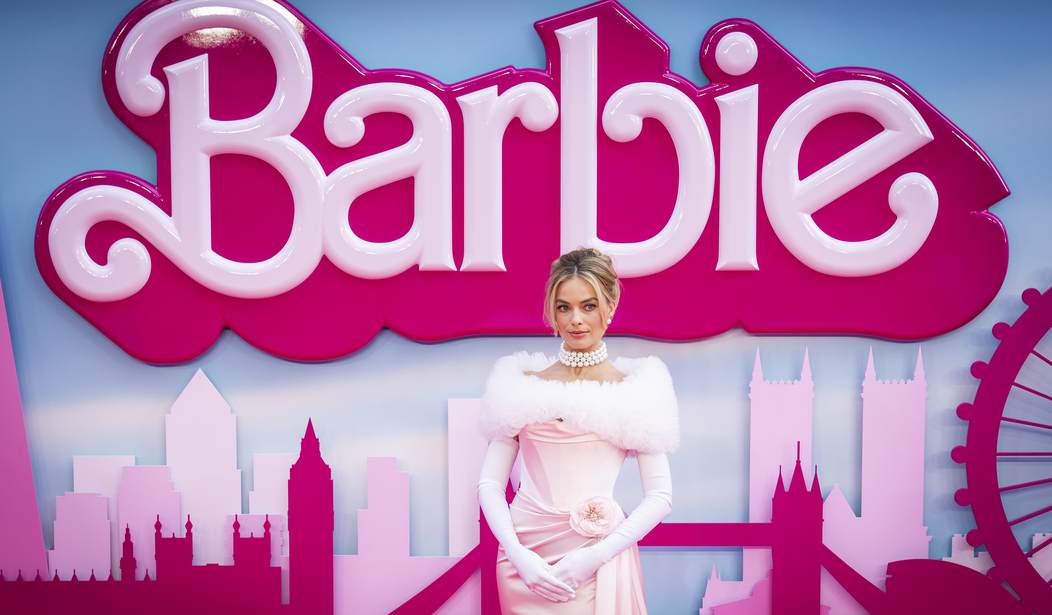By now, you’ve probably heard that the Barbie movie isn’t the hilarious meta-comedy that it was expertly marketed as and is actually a hyper-partisan commentary on patriarchy and capitalism. But before you completely write it off (or do) there was something that various viewers noticed about the film that even the film’s creators likely overlooked.
Director Greta Gerwig and lead actress Margot Robbie revealed that this was a very feminist film just before the film’s release. True to their word, it was so feminist that it began sinking into the realm of parody, and not in the way Gergwig and company intended.
To understand this, the character we want to focus on isn’t Barbie, but Ken, the character some are claiming is the real center of the film.
In the movie, Barbieland is a real place where all the Barbies hold all the positions of power from the Supreme Court to the Presidency. They live in wallless dream houses and look perfect at all times. Then there are the Kens. They are second-class citizens within this society. They hold no positions of power, and their main character trait is that they simp after the Barbies.
At some point, Barbie begins to become less perfect. Her feet stop being perfectly high-heeled, she no longer floats when she falls, and she has these intrusive dark thoughts. She’s informed by another older Barbie that in order to find out what’s happening to her, she has to go to the real world and discover the truth about the universe. Barbie begins her journey but soon finds she’s accompanied by Ken, whose love of Barbie compels him to go wherever she does.
It’s in the real world that Barbie and Ken have their own separate journies but both are informed about the existence of “the patriarchy.” While Barbie learns of its evils, Ken sees it differently, and it’s here that we see the tragedy of Ken begin to unfold completely.
According to a thread by X user “Siege,” Ken is a representative of the modern man. He’s “anxious, confused,” and “chasing women who don’t care about him.” His exit from Barbieland and into the real world shows him something he had no concept of before; “worth.” He goes from being a useless bystander in his own life to finding out that he actually has agency.
As Siege notes, this discovery leads to him taking interest in things other than Barbie and he begins to discover a world without enslavement to a singular object. Instead of staying in the real world and hoarding this new knowledge for himself, he immediately takes this knowledge to the other Kens to free them.
Rather than stay in a world where men are obviously better off, Ken decides to RETURN. Like a Prometheus, Ken brings the fire of will-to-power back to the other Kens. Men who he was competing with just days before, men who he was long pitted against in the longhouse.
— 𝕊𝕀𝔼𝔾𝔼🏝 (@6iege) July 24, 2023
Ken not only frees the other Kens, but he brings forth a society that departs from the oppressive matriarchal system and one that values both sexes. Ken puts the future of society up for a vote.
It’s here that the Shakespearean tragedy takes a turn for the worst. Barbie and older Barbie begin the process of removing the “brainwashing” the Kens implemented from the other Barbies by feeding them made-up feminist propaganda from the real world. From there, their plan is to turn the Kens against each other by the Barbie’s seducing other Kens in front of their Ken.
As the Kens are distracted by a musical number/war, the Barbies now hold a rigged vote, giving all the power back to the Barbies and, once again, making the Kens their subservient, simping lessers. Ultimately, Ken is cut loose from Barbie and the Kens are given lesser roles in the government for their troubles, but in the end, they’re doomed to subjugation.
A few things should stick out. For one, once Ken found out that he could be more, the feminists who wrote this movie considered this a bad thing and exaggerated it into being an ego issue.
Also, once Ken brought back his knowledge to Barbieland, it was played off as brainwashing that the all-powerful Barbies had no defense against. In fact, it was compared to the “indigenous tribes and polio.” This wasn’t a virus, though, it was just a few ideas that even the Barbies didn’t seem to hate.
It was Ken who called for a vote, yet the fully indoctrinated Barbie saw this as a bad thing and sought to rig the vote by lying and causing discord among the populace. All of this was to restore power to the matriarchial system that held an entire part of the civilization down.
When you zoom out on the plot of the film, you start to see Ken as a tragic character who just wanted to be more than a dog who lived off the scraps of attention he was given by the people who lived above him on the societal ladder. He not only ventured out and discovered he was worth more, but he also took that knowledge home to his own kind so they could benefit as well. It was through deceit and trickery that his plan to liberate society failed, and he ultimately left with less than when he started.
But this is a plot that was dressed with exaggerated misogyny so that the modern feminists who made it could call it a movie with a positive message for women. What was that positive message again? Women must fight men at every turn, treat them like garbage, and ruin any plans they have to better themselves.
Sounds like a classic lack of self-awareness from modern feminism to me.














Join the conversation as a VIP Member